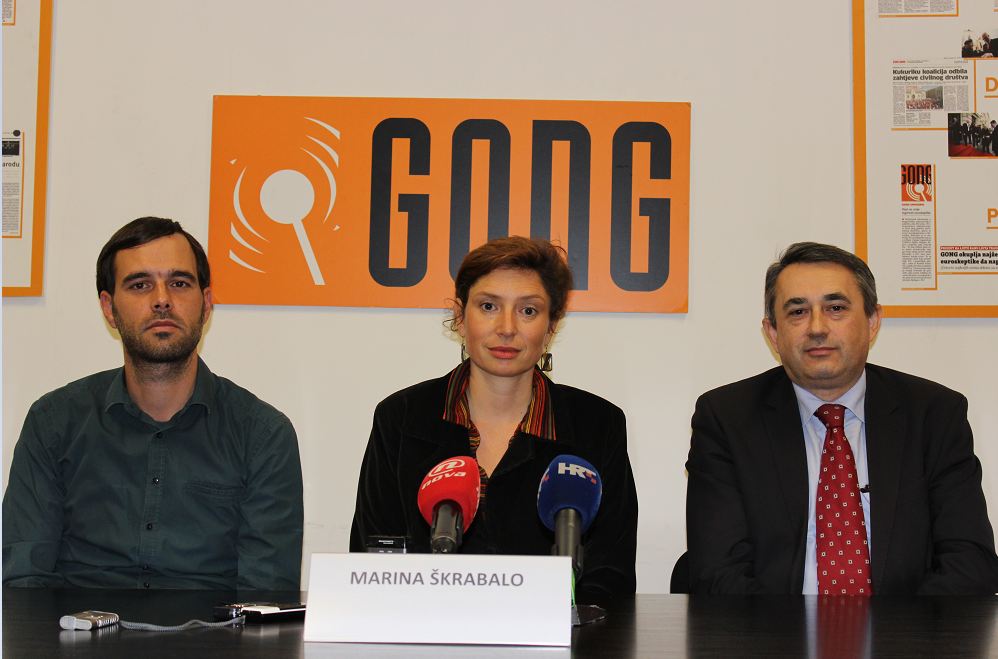Without an efficient public administration, there is no such thing as a fair democratic society or a sustainable economy; it is the best strategic investment in existence. However, administrative reform requires expert preparation, social dialogue and political consensus – these were the messages sent out in an open letter to the Government, Croatian Parliament and President of the Republic of Croatia, along with an assessment of the proposed Strategy for Public Administration by the Year 2020 by the expert community, civil society organizations and trade unions.
Provision of public services is a responsibility of the state indispensable to a fair society and public administration reform is one of the key issues in Croatia that need to be agreed upon – states the open letter signed by GONG, Platform 112, Institute for Public Administration, Croatian Law Centre, Department of Public Policy, Management and Development of the Faculty of Political Science, Croatian Business Council for Sustainable Development, Association of Croatian Unions, Independent Trade Unions of Croatia and Union of Autonomous Trade Unions of Croatia.
Although the implementation of a reform package entitled “smart administration” calls for 88 million euro through the Partnership Agreement with the EU on using European Structural and Investment Funds, the Government has published the Strategy Proposal, which is still far from completion and was drafted with no consultation with social partners and the expert community.
In the words of Ivan Koprić, professor of administrative science and president of the Institute for Public Administration: “This document displays a certain level of quality, but it is still stuck in the middle and could go both ways – on its own, it does not look bad, but stands to fall because it has no adequate foundations, no way to attain it and provides no idea of what should be done”. He went on to say that the expert eye can quickly discern that the document makes no mention of public interest services, does not put a stress on local self-government, does not mention European governance, disregards the issue of education for entry into public administration and provides for inconsistent goals.
Therefore, the signatories of the open letter demand that the Strategy Proposal be supplemented with a detailed situation analysis, expertly reviewed, elaborated to a uniform level of quality, as well as for all of the above to be done in cooperation with public administration practitioners and experts in academia. The goal of public administration reform should be an effective, fair and transparent provision of public services to citizens, the community, the business sector and a broad spectrum of social actors, and not a thinly veiled excuse for drawing EU funds.
Public administration reform – the best strategic investment
Darko Šeperić of the Union of Autonomous Trade Unions of Croatia stated the Strategy Proposal to be „a good first step“, adding that „the trade unions in no way resist public administration reform, as it is the necessary prerequisite for a slew of other reforms“. On the contrary, the unions advocate „social dialogue, not as a deterrent to reform, but as a tool of achieving it in order for public administration to truly become a service of the citizens“. With this goal in mind, the signatories demand that the Strategy be discussed in the Economic and Social Council of the Republic of Croatia, subjected to another round of public consultation, and then submitted to the Croatian Parliament for a detailed discussion, a vote and a Resolution binding this and all subsequent Governments to the Strategy’s intensive and comprehensive implementation. The entire procedure is to be conducted in cooperation with social partners and experts, with an obligation of submitting semi-annual implementation reports to the Parliament and the public.
“The period until 2020 should be used to the best of our abilities, without resorting to a new reproduction of documents in place of real reform”, warned GONG’s Marina Škrabalo, taking a very concrete example as a case that demonstrates the exceptional importance of public administration reform: “We are all, unfortunately, well acquainted with the case of teaching assistants for pupils with special educational needs enrolled in regular school programs. Luka from Rijeka, Patrik and his assistant Ana from Slavonski Brod, Maja from Petrinja – their personal stories all point to an unreformed public administration, with inadequate financial capacities and unclear competencies, gaping holes in budget programming, a lack of quality standards for social services, as well as an absolute abyss of vertical and horizontal institutional co-ordination, stemming from a lacking understanding of the concept of public service provision established in the constitutional obligations of the Republic of Croatia – the principle of equality and a welfare state, realized through inclusive education”.
By the same ticket, “we could speak of Croatia’s competition capability, on why we need a Law on Strategic Investment Projects and not, for example, merely reform at the level of issuing building permits. Which brings us back to the beginning – the state is responsible for public service provision and without that in place, we cannot discuss the development of a fair democratic society or a sustainable economy”, reminded Škrabalo.
